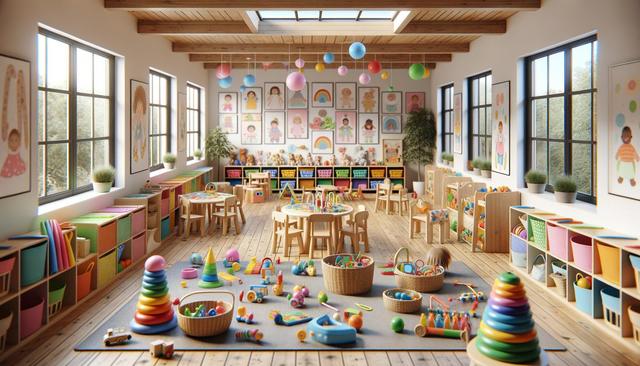Understanding the Purpose of Daycare
When many people think of daycare, they often envision a basic childcare service—a place where children are simply watched over while parents are at work. However, quality daycare is much more than that. It is a thoughtfully designed environment where children are encouraged to grow, learn, and engage with others. The purpose of daycare extends beyond supervision; it nurtures children’s cognitive, emotional, and social development during their most formative years. By offering a balance of structured routines and free play, daycare helps children develop foundational skills that prepare them for school and beyond.
Daycare programs typically incorporate age-appropriate activities that stimulate curiosity and promote learning. These include storytelling, music, art, early literacy exercises, and physical play. Such activities support language acquisition, motor skills, and emotional regulation, all of which are crucial for early childhood development. In addition, many daycare centers employ trained educators who understand child development and apply proven teaching strategies to guide children through their day.
Social and Emotional Benefits
One of the most significant advantages of daycare is the opportunity it provides for social interaction. Children in daycare learn to share, cooperate, and communicate with peers, which lays the groundwork for strong interpersonal skills. These experiences help children build confidence and empathy, making it easier for them to form healthy relationships later in life.
Emotional development is also supported in a daycare setting. Consistent schedules and caring adult supervision provide a sense of security and predictability. Children learn how to express their feelings, manage frustration, and navigate new social situations with the guidance of attentive caregivers. Over time, they begin to develop a better understanding of their emotions and how to respond to the emotions of others.
Educational Foundations
Quality daycare programs often incorporate early learning curricula that align with preschool standards. These programs introduce basic concepts such as numbers, letters, shapes, and colors through engaging, play-based activities. Children develop early literacy and numeracy skills, as well as problem-solving abilities that will serve them well in future academic settings.
Some educational elements commonly found in daycare include:
- Storytime sessions that enhance listening and comprehension
- Arts and crafts projects that boost creativity and fine motor skills
- Group games that teach cooperation and turn-taking
- Simple science experiments that encourage curiosity
These experiences are not just fun; they are carefully designed to support developmental milestones and foster a love of learning.
Support for Families
In addition to benefiting children, daycare services offer meaningful support to families. For working parents, having access to reliable childcare can reduce stress and improve work-life balance. Knowing that their child is in a safe, nurturing environment allows parents to focus on their professional responsibilities with greater peace of mind.
Daycare centers also often serve as a community hub, connecting families with one another and with valuable resources. Some facilities offer parent workshops, family events, and referrals to health and developmental services. This sense of community can be especially helpful for new parents or those navigating early childhood challenges.
Furthermore, regular communication between caregivers and parents ensures that families stay informed about their child’s progress, behavior, and any areas needing attention. This partnership supports consistent care and reinforces developmental goals both at home and in the daycare setting.
Choosing the Right Daycare
Selecting a daycare is an important decision that should be based on a variety of factors. Parents should look for facilities that are licensed and follow safety regulations. It’s also important to evaluate the caregiver-to-child ratio, staff qualifications, cleanliness, and the overall atmosphere of the center. Visiting the site and asking questions can offer valuable insights into whether a daycare will meet a family’s needs.
Key things to consider when choosing a daycare include:
- The center’s philosophy and approach to early education
- Daily routines and how they support learning and development
- Communication policies between staff and families
- Feedback from other parents in the community
By taking the time to research and observe different options, parents can find a daycare that aligns with their values and supports their child’s growth in meaningful ways.
Conclusion
Daycare is more than just a place for children to spend the day—it’s a dynamic environment that supports early learning, fosters emotional growth, and encourages positive social interactions. For families seeking a structured, nurturing setting that will help their child thrive, quality daycare can be a powerful ally. By understanding what daycare truly offers and selecting the right program, parents can make informed choices that benefit both their children and their family as a whole.




Leave a Reply